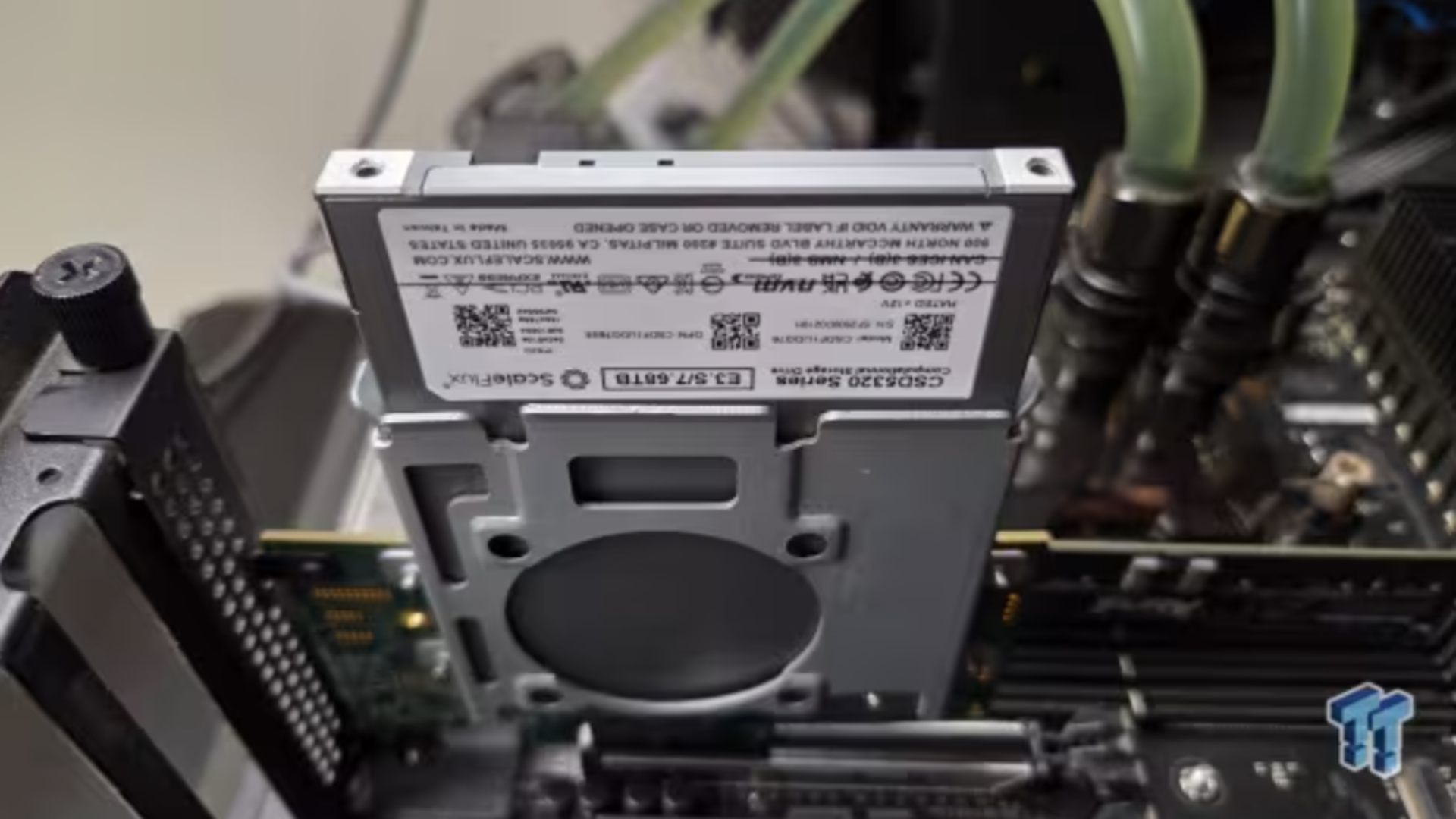- ScaleFlux CSD 5320 SSD integrates compression engines directly into hardware for greater efficiency
- Sequential write speeds exceed 13GB/s when handling compressible enterprise data
- Random IOPS performance approaches 3.3 million in specific enterprise workloads
ScaleFlux has introduced the CSD 5320, a PCIe Gen5 enterprise solid-state drive that relies heavily on on-device compression.
Unlike traditional storage devices that simply write and read data, this model integrates compression and decompression engines directly into the hardware.
The company argues this design enables enterprises to store much more data than the physical NAND would normally allow, in some cases up to four times the raw capacity.
Performance claims and testing
ScaleFlux claims by reducing the amount of data physically written, the device also aims to extend drive endurance, which has been a persistent challenge for high-performance flash storage.
Independent testing by TweakTown reported sequential write speeds above 13GB/s when dealing with compressible data.
This figure surpasses what has been recorded from many PCIe Gen5 competitors.
Sequential read performance peaked at over 14GB/s, which is well beyond the typical expectations for a drive in this class.
Random performance benchmarks also indicate figures approaching 3.3 million IOPS in certain workloads.
These numbers would put the CSD 5320 at the top of current enterprise results, potentially placing it in contention for the fastest SSD in the market.
The CSD 5320 achieves more input and output operations per watt than many conventional competitors, and some tests suggest it has over 3x the write efficiency of other Gen5 enterprise drives.
Although fast, the real advantage of this chip may lie in how it balances energy use against throughput, particularly in data centers where power budgets are already stretched.
The 7.68TB model is only one option in a line that ranges up to 128TB of physical NAND, with effective storage reaching as high as 256TB when compression is factored in.
This places it among the largest SSD offerings in the enterprise segment, at least on paper.
The endurance claims are also aggressive, with ScaleFlux suggesting that compressible workloads can see up to six times the usable lifespan compared to conventional NAND storage.
These projections, however, depend entirely on how compressible a customer’s data actually is.
While the review reveals extraordinary performance, cautious enterprise buyers will likely demand comprehensive long-term validation.
The CSD 5320 might deliver exceptional performance in the right conditions, yet its real-world value will depend less on peak benchmarks and more on whether its workloads align with the promises being made.
